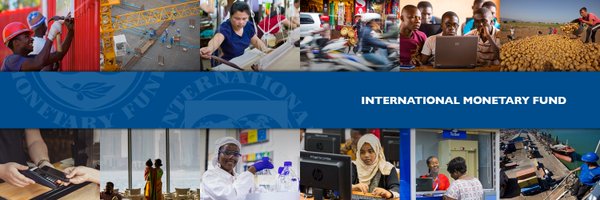 (AGENPARL) - Roma, 10 Giugno 2022
(AGENPARL) - Roma, 10 Giugno 2022(AGENPARL) – ven 10 giugno 2022 The latest IMF analysis of global economics, finance, development and policy issues shaping the world. []
[IMF Weekend Read]
Dear Colleague,
In today’s edition, we discuss how authorities can protect the vulnerable from rising food and fuel prices, the economic benefits of scraping coal, how the world must rewire multilateralism, fragility and conflict, laws that hold women back, North Africa’s shadow economy, supply chains, Argentina, Montenegro, economies seen from outer space, and much more.
Food and Fuel Prices
Why Countries Must Cooperate on Carbon Prices
(PHOTO: FOOD AND AGRICULTURE ORGANIZATION/GIUSEPPE BIZZARRI)
Russia’s invasion of Ukraine followed last year’s steep gains in commodity markets, pushing food and energy prices to historic highs. Prices for wheat, a staple in which Russia and Ukraine together account for about a quarter of global exports, are up 54 percent from a year earlier.
People in low-income countries are most vulnerable to higher prices because food accounts for 44 percent of consumption on average, compared with 28 percent in emerging market economies and 16 percent in advanced economies.
–Different Countries, Different Responses: Not all countries are able to follow the same path, the authors say. Where subsidies exist, the pacing of price adjustments and the extent to which social safety nets are used will differ from country to country.
Over the next two to three years, governments should focus on investing in social safety nets and reforming existing subsidies, the authors say. “Such overhauls will help countries improve resilience and promote more productive spending to support inclusive growth.”
Climate Change
(PHOTO: IMF PHOTO/LISA MARIE DAVID)
International negotiators can’t agree on how to phase out coal, in part because of opposition to carbon taxes, and now even countries that had been able to abandon the fuel are reversing that progress as the war in Ukraine raises energy prices.
–Great Carbon Arbitrage: The authors analyze the “great carbon arbitrage”, as they call it, and calculate the cost of replacing coal with renewables, as well as the social benefits of this important transition.
“Our estimate is that by doing so the world would yield a net gain of nearly $78 trillion through the end of this century. That’s around four-fifths of global gross domestic product now, and would be equivalent to about 1.2 percent of annual global economic output during the period.”
(CREDIT: PETER REYNOLDS)
The pandemic, war in Ukraine, the threat to food security, and the resurgence of global poverty. Heatwaves, droughts, and other extreme weather events. These are not random shocks. Nor are they a perfect storm in the conventional sense, a one-off conjuncture of bad events. We face instead a confluence of lasting structural insecurities—geopolitical, economic, and existential—each reinforcing the other.
“A more polarized and fragmented world will ultimately weaken all nations, including the largest ones, and make it difficult if not impossible to meet the interests that all of humanity shares: in a safe, sustainable, and prosperous world, inclusive and equitable for all.”
Geo-Economic Puzzle: Policymaking in a More Fragmented World
Our June issue focuses on the economic dimensions of the current geopolitical situation, including the war in Ukraine, refugees, and food prices.
Authors include Pierre-Olivier Gourinchas, Eswar Prasad, Raj Chetty, Barry Eichengreen, Patricia Clavin, and many others, who examine the rare confluence of geopolitical, economic, and technological forces now confronting the world.
—————————————————————
(PHOTO: ISTOCK/BENEDEK)
(PHOTO: ISTOCK/GUENTERGUNI)
(PHOTO: IMF PHOTO/RYAN RAYBURN)
(PHOTO: IMF)
WEEKLY ROUND-UP
—————————————————————
MARK YOUR CALENDAR
—————————————————————
[Profile]
Nick Owen
Editor
IMF Weekend Read
Thank you again very much for your interest in the Weekend Read! Be sure to let us know what issues and trends we should have on our radar.
Connect on Social

